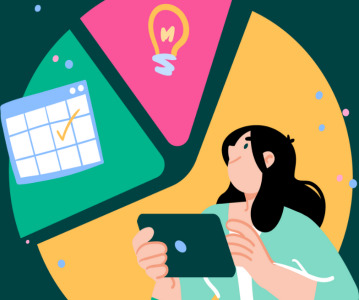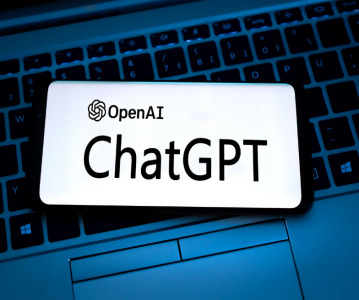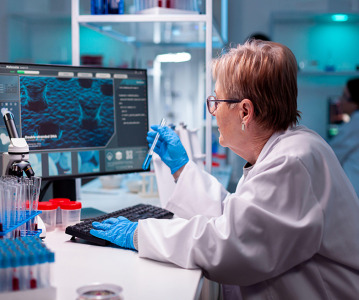Report: Introducing Artificial Intelligence and Machine Learning In the Life Sciences
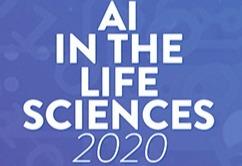
Key Milestones Indicate Transformational Power of AI and Machine Learning
The New Revolution
In the past, the pharma industry has expressed skepticism around the adoption of artificial intelligence and machine learning to perform tasks such as molecular design, discovery and clinical trials. After all, lives are at stake and Mark Zuckerberg’s idea that success requires startups to “move fast and break things” is the antithesis of the industry’s guiding principle to “do no harm.”
Therefore, companies making bioactive substances to put into patients and maybe even permanently engineer their genes must be very cautious that the technologies they are using are proven and safe. Despite this reluctance, there has been an explosion of promising startups created over the last five years that merge the field of computer science with computational biology, chemistry and biophysics. These companies are seeking to disrupt the current paradigm wherein new drugs fail to reach the market over 90-95% of the time, costing US$2.6 billion to develop (compared to US$0.2 billion in the 1980s), with development timelines of 10-15 years (McKinsey).
Part of the reason for this inefficiency is that drug discovery in pharma comes from a heritage of trial and error. Many molecules are tested before finding one that works that can be taken forward. This new wave of companies is attempting to make the process much more efficient. BenchSci, for example, was founded on the thesis that a big pharmaceutical company will conduct tens of thousands of experiments per year to evaluate molecular targets. On average, around 7,000 non-clinical, non-human experiments are needed to get a drug into the clinic and roughly 50-70% of those experiments do not scientifically advance the study of those targets. Improving the efficiency of this process would generate enormous value by lowering costs and timelines. AI is an uninterested participant in terms of trying to understand biology and does not require the same need to create mental frameworks that humans rely upon.
As a result, artificial intelligence can learn what drives biological systems in a much more comprehensive and non-hypothesis-driven way. Daphne Koller, founder of Insitro refers to this as moving drug discovery from an artisanal to an engineered approach, where a lot of the pieces to be built are designed to be performed in a repeatable reproducible manner. Although biology is extremely complex, one can draw parallels to the sentiment shift that occurred in finance and see that pharma could be going through a similar generational change. Because machine learning and AI, at their heart, are the most statistically sound way to handle large amounts of information, and drug design is fundamentally a data science problem, the decades ahead could fundamentally transform expectations around drug costs, time to market and how science is done.
Learn more on the outlook and potential on AI and ML in our free report, provided by Global Business Reports.
Related News
-
News 2024 Pharma Industry Trends Outlook: Collaboration, Market Maturity, and Digital Futures
The annual CPHI Online 2024 Pharma Trends Outlook, in partnership with Arvato Systems, identifies 12 key industry trends shaping the life sciences industry in the coming year. -
News New Novo Nordisk AI hub for drug discovery to open in London, UK
Danish pharmaceutical giant Novo Nordisk will be opening an AI-based research facility in the heart of London to advance drug discovery operations. -
News Women in Pharma: Looking back on 2023 and moving forward to 2024
In this monthly series, we interview women from across the pharmaceutical industry and supply chain to discuss the importance of gender diversity in healthcare, the workplace, and beyond. -
News CPHI Barcelona 2023: Loading Potential – Artificial Intelligence for Pharma Manufacturing
During CPHI Barcelona 2023, insightful content sessions offered attendees the chance to explore trending topics with expert speakers and panellists. Here, we summarise what the pharma industry and supply chain are talking about the most. -
News On track at CPHI Barcelona - The Track Sponsor interview: Procaps
In our packed out content sessions at CPHI Barcelona this year we focus on some of the hottest topics coming up in the pharma industry, with each track sponsored by a leading expert in the field. -
News Your Prescription for Marketing Success: Digital Pharma Marketing Toolkit – Free eBook
Download your FREE pharma marketing eBook to learn why it is so important for pharmaceutical marketeers to develop their digital content marketing strategies in order to establish their companies as thought leaders and industry experts. -
News 3 ways ChatGPT will impact pharma marketing teams
What does the rise of AI-powered chatbots such as ChatGPT and GPT-4 mean for pharma marketeers? -
News Pharma needs ‘mindset change’ to unlock benefits of digitalisation – CPHI Frankfurt preview
For more information about digitalisation in pharma, register to attend CPHI Frankfurt 2022.
Position your company at the heart of the global Pharma industry with a CPHI Online membership
-
Your products and solutions visible to thousands of visitors within the largest Pharma marketplace
-
Generate high-quality, engaged leads for your business, all year round
-
Promote your business as the industry’s thought-leader by hosting your reports, brochures and videos within your profile
-
Your company’s profile boosted at all participating CPHI events
-
An easy-to-use platform with a detailed dashboard showing your leads and performance
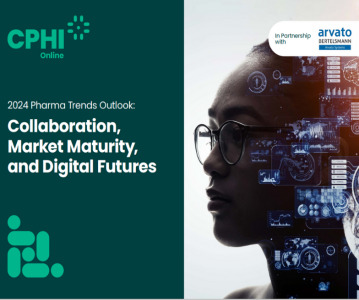
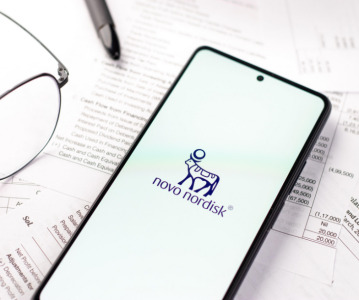

.png)

